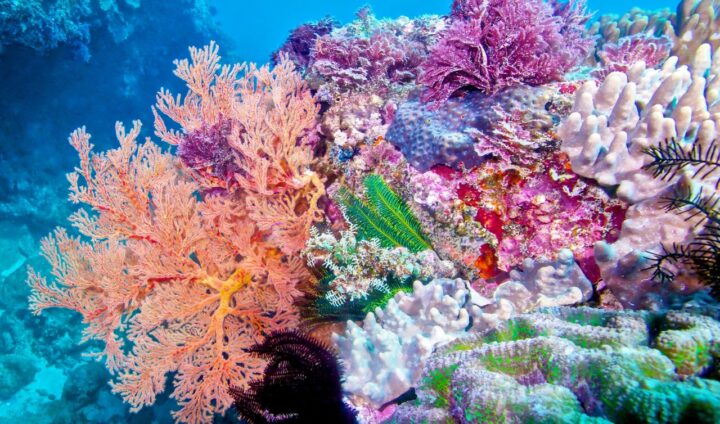
Marine biologist develops first drug for corals – it resembles yoghurt
About 50 percent of all coral reefs worldwide have already died. With increasing global warming, this number could increase. A researcher has now found a method that could save corals from dying.
The Great Barrier Reef in particular is known for the great coral bleaching that has unfortunately replaced the once colorful reef. But other reefs are also threatened. The reason for this is the climate crisis and the associated production of greenhouse gases. Researchers give sobering forecasts in this regard: Even if we achieve the 1.5 degree target, 90 percent of all tropical coral reefs would still suffer considerable damage.
However, according to marine biologist Raquel Peixoto, coral reefs are the base of marine ecosystems. 34 percent of all other sea creatures depend on them. Due to the long-term excessively warm water temperatures and the acidification of the seas, the corals bleach and die. Bleaching occurs because the algae that actually live inside and provide nutrients for them die or leave the corals.
Peixoto has now developed a method that could help conserve the world’s coral reefs. She uses probiotics for this.
This is how coral medicine works
We ingest probiotics ourselves through food: the living microorganisms are found, for example, in yoghurt, sauerkraut, kombucha and other fermented products. They are also available as dietary supplements and are used, for example, to treat intestinal diseases.
In the lab, Raquel Peixoto took a closer look at how probiotics affect corals. To do this, she applied the microorganisms to corals and then brought them into contact with oil, high temperatures and pathogens, i.e. pathogens. The result: With the probiotics, the survival rate increased by 40 percent.
This shows that probiotics appear to make corals more resilient and can help them regenerate faster. According to Peixoto, this is the first medicine for corals. She is currently testing how this actually affects coral reefs in the sea. To do this, she coated a coral village in the Red Sea with the probiotic mixture last fall. She wants to find out which types of coral the medicine has the greatest effect on.
We can still save some of the reefs!
But Raquel Peixoto emphasizes that her newfound coral medicine alone is not enough to save the reefs. Above all, we must do more to stop the climate crisis. This is the only way for the water temperatures to normalize again. We also have to combat or prevent local pollution. Finally, oil and marine debris damage coral health. As a third step, according to Peixoto, we should start actively restoring the reefs. The probiotic cocktail could play an important role in this.
In the future, the marine biologist would like to work on adapting the mixture to the respective needs of the different coral reefs and species. To do this, she works with researchers all over the world.
But under the current conditions, we will only be able to save part of the coral reefs. According to Peixoto, around 70 to 90 percent will be lost forever in the future. Depending on how well and consistently we operate climate protection in the coming years, the remaining reefs still have a chance.
Categories: General
